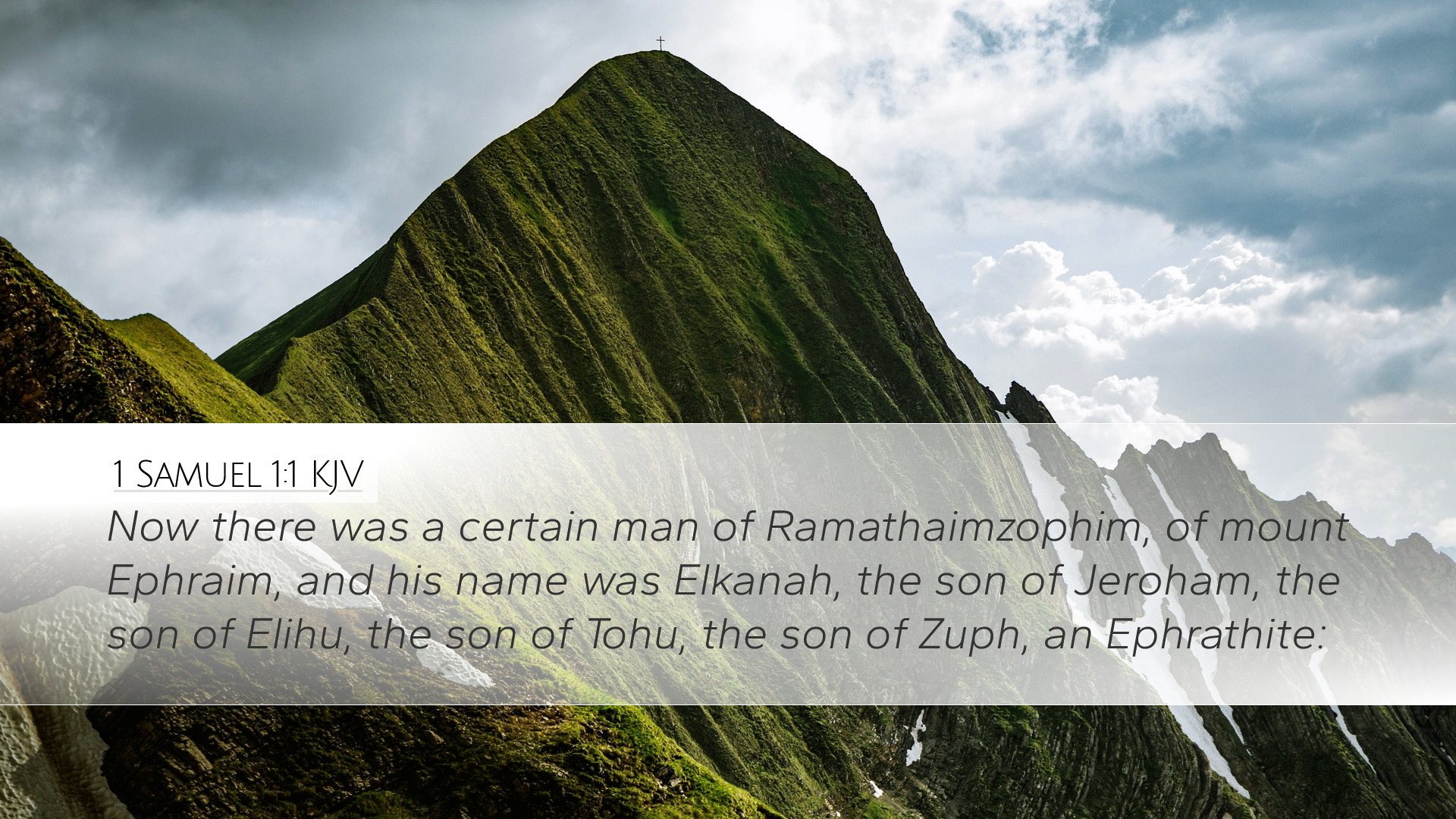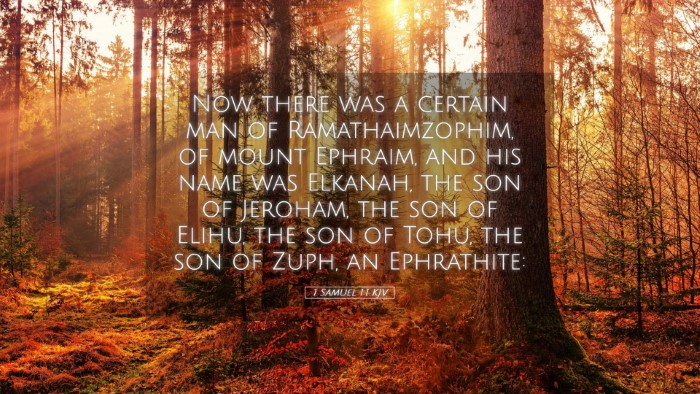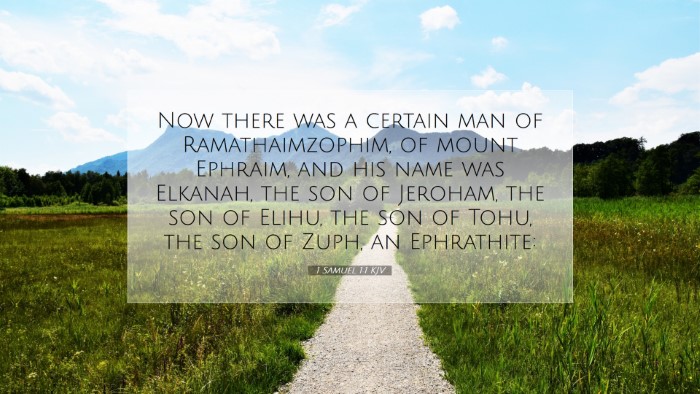Commentary on 1 Samuel 1:1
Verse: "Now there was a certain man of Ramathaim-zophim, of Mount Ephraim, and his name was Elkanah, the son of Jeroham, the son of Elihu, the son of Tohu, the son of Zuph, an Ephrathite."
Introduction
The opening verse of the first book of Samuel introduces a significant figure in Israel's history, Elkanah. This brief yet informative verse serves as a prelude to the entire narrative, setting the stage for the birth of Samuel, a prophet and leader who plays a pivotal role in the transition of Israel from a theocracy to a monarchy.
Historical Context
According to Albert Barnes, understanding the historical context of this verse is vital. The era portrayed is one of unrest and moral ambiguity in Israel, characterized by a lack of leadership and spiritual guidance. The mention of Mount Ephraim, where Elkanah dwells, is crucial as Ephraim held a prominent position in Israel, often associated with leadership.
Character Analysis of Elkanah
Elkanah, as described, is not just an ordinary man but is part of a genealogical line that suggests a connection to significant historical and spiritual heritage. Matthew Henry elaborates that the detailed lineage implies his notable status and the expectation of holiness among his descendants. Elkanah's name means "God has possessed," which signifies the divine favor surrounding him and his family.
Names and Their Significance
- Elkanah: His name reflects divine possession, denoting a trust in God for familial blessings.
- Jeroham: Meaning "he will be loved," the lineage embodies qualities of love and favor.
- Tohu: Represents chaos or emptiness, an ironic juxtaposition to the fruitful future of Samuel.
- Zuph: The name suggests a connection to divine redemption, prefiguring God’s work through Samuel.
The Importance of Location
The geographical reference to Ramathaim-zophim is strategically placed to signify a location of importance in the narrative. Adam Clarke notes that its name means "double height" and suggests a place elevated both geographically and spiritually. This elevation can be seen as a metaphor for the spiritual awakening that would soon emerge through Samuel's ministry.
Spiritual Symbolism
This opening verse not only serves as an introduction to the characters but also offers rich symbolic meaning. The mention of Elkanah signifies hope amidst despair, a recurring theme in the Biblical narrative. Henry remarks that Elkanah's faithfulness to God illustrates a model for believers; despite the prevailing corruption in Israel, he remained steadfast in his worship and practice of faith.
The Practice of Worship
Elkanah is depicted as a man who faithfully offers sacrifices, indicating the ritual practices of the time and their importance in maintaining covenant relationship with God. Barnes mentions that this act of worship reflects a longing for genuine connection with God, an essential aspect for leaders and believers alike. Elkanah serves as a bridge between the legacy of the past and the unfolding history of Israel.
Conclusion: Preparing for a New Era
In summary, 1 Samuel 1:1 not only introduces Elkanah but also encapsulates the beginning of a profound transformation for Israel. The details within this verse lay a foundation rooted in faithfulness, heritage, and the anticipation of God's interventions in bleak circumstances. As noted by Clarke, this verse beckons us to reflect on our own faith journeys, prompting us to seek divine involvement in our lives amidst societal turmoil.
Ultimately, the story of Elkanah and his family is about the faithful prayer, longing, and eventual fulfillment that comes through divine providence, foreshadowing the significant role Samuel will play in guiding Israel into a new chapter of their identity as God's chosen people.


